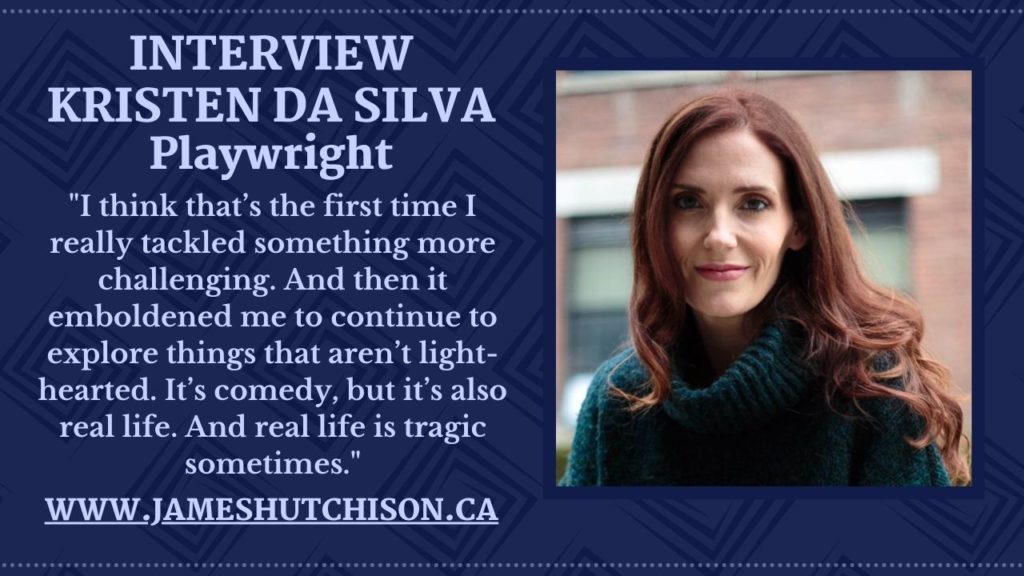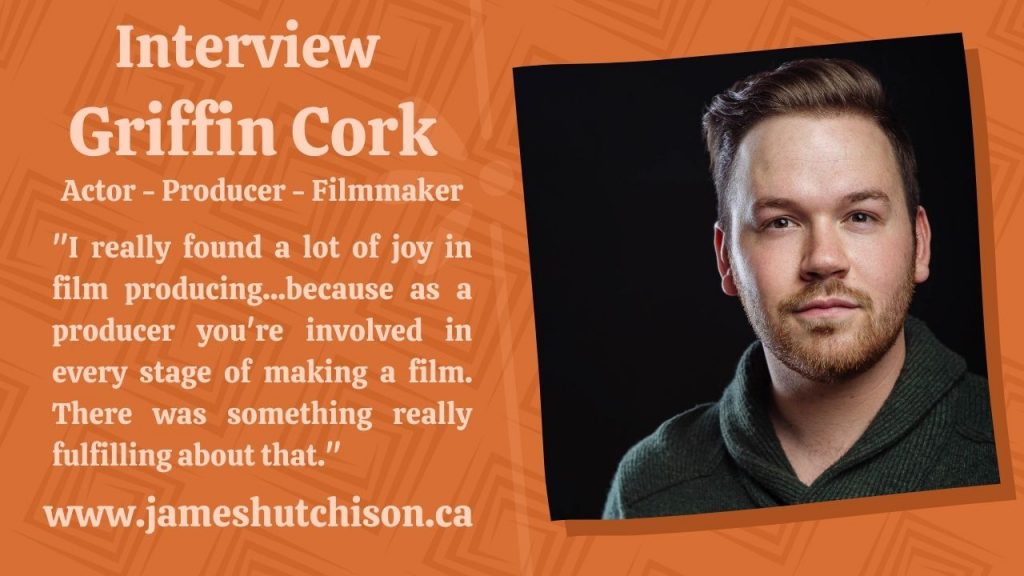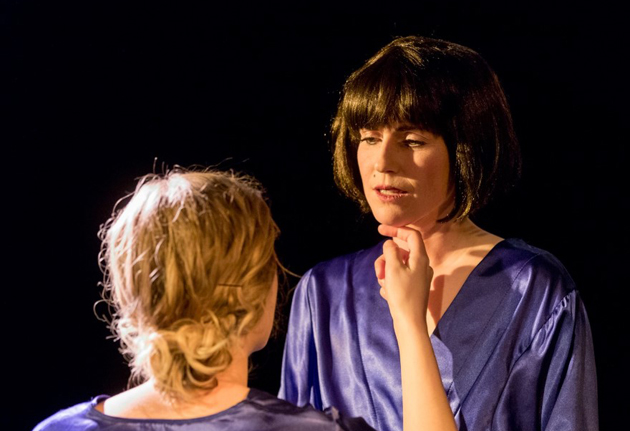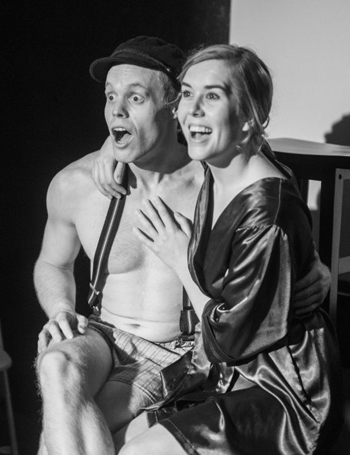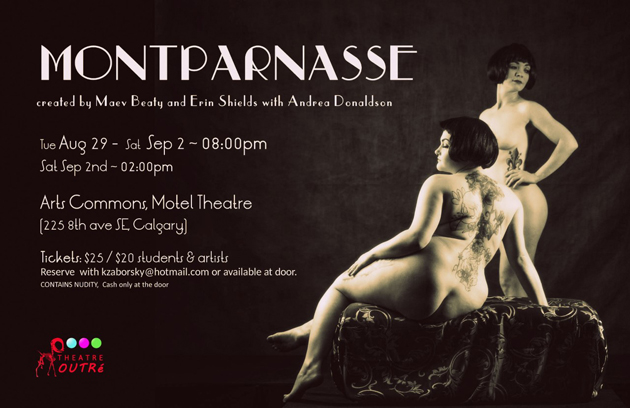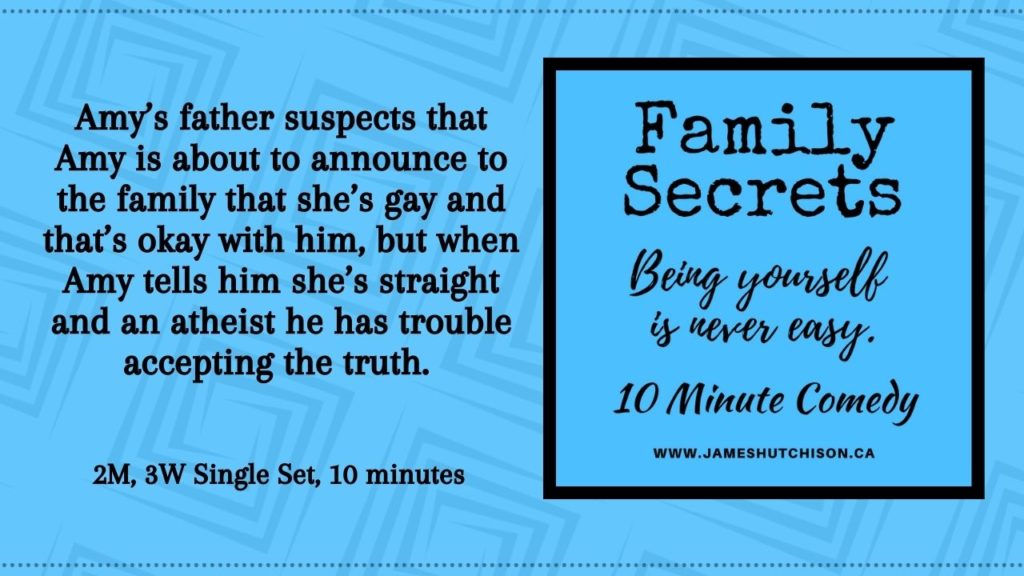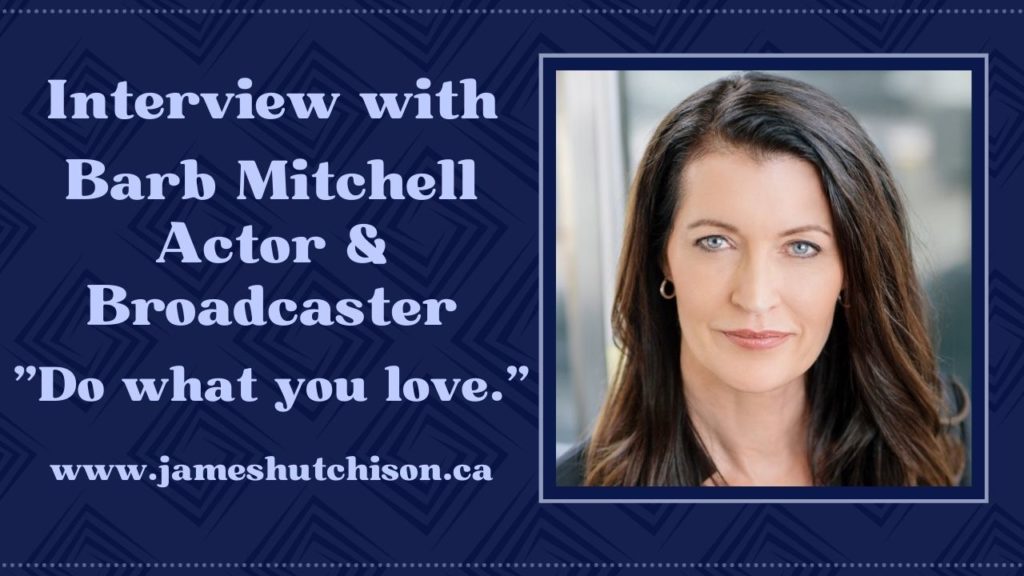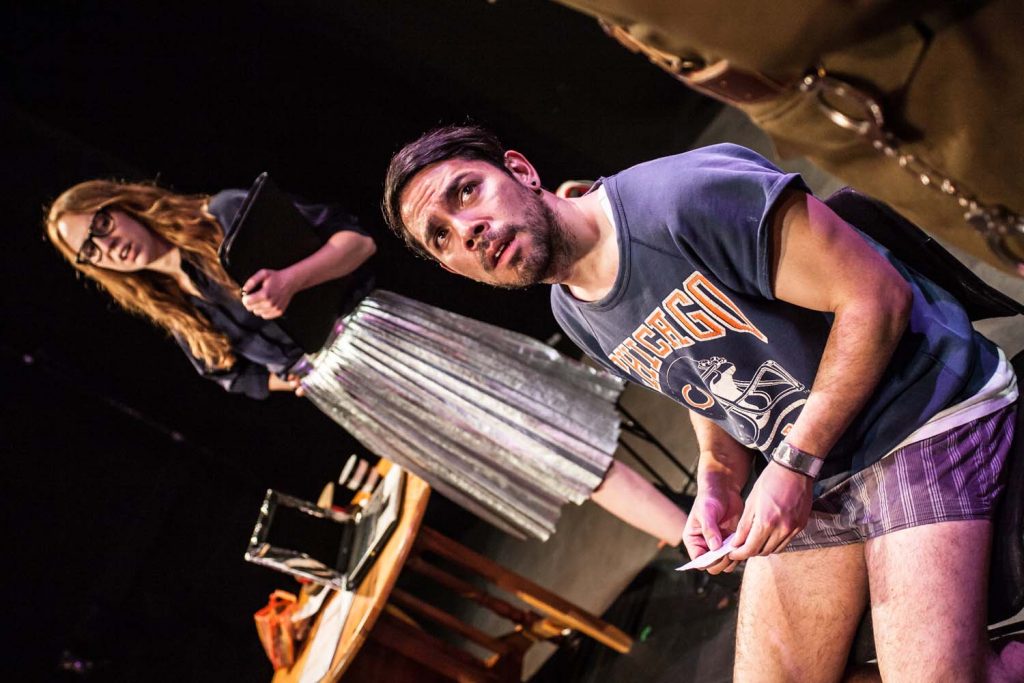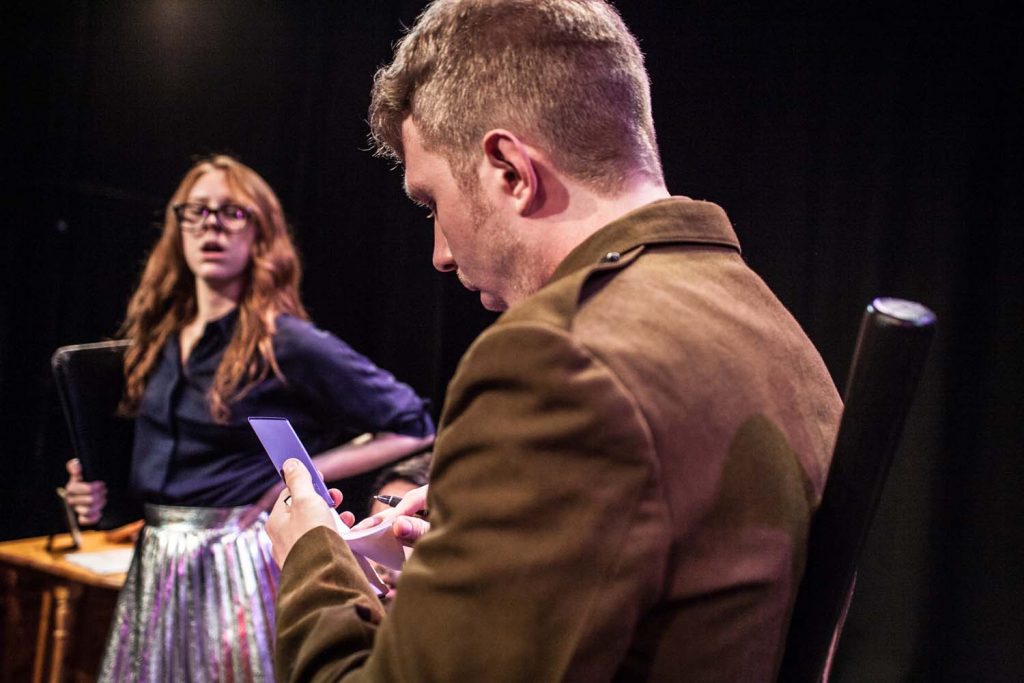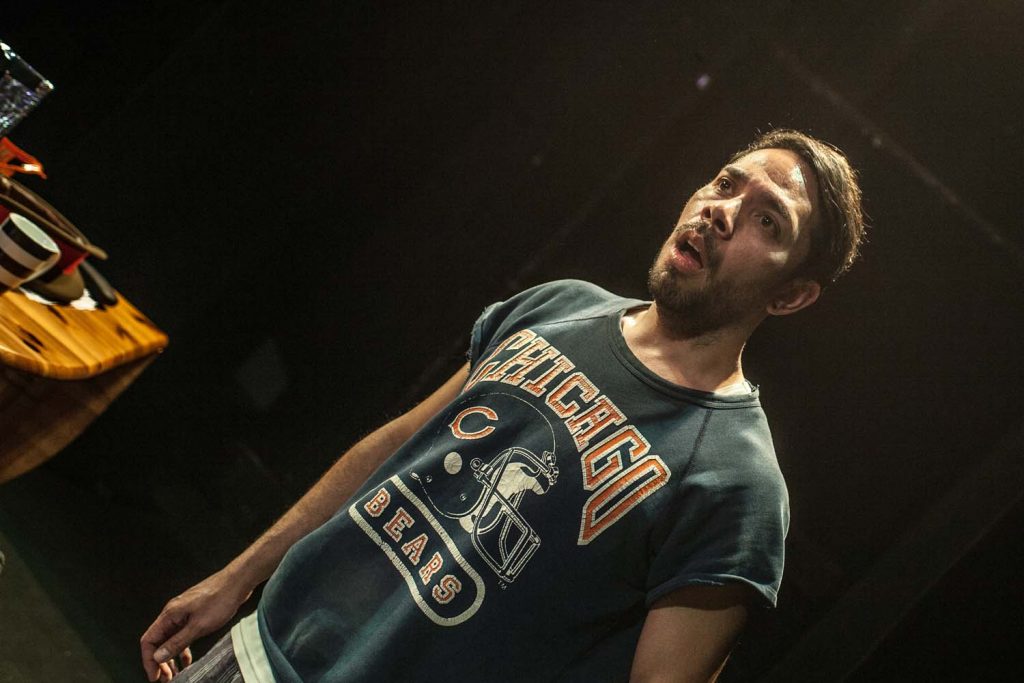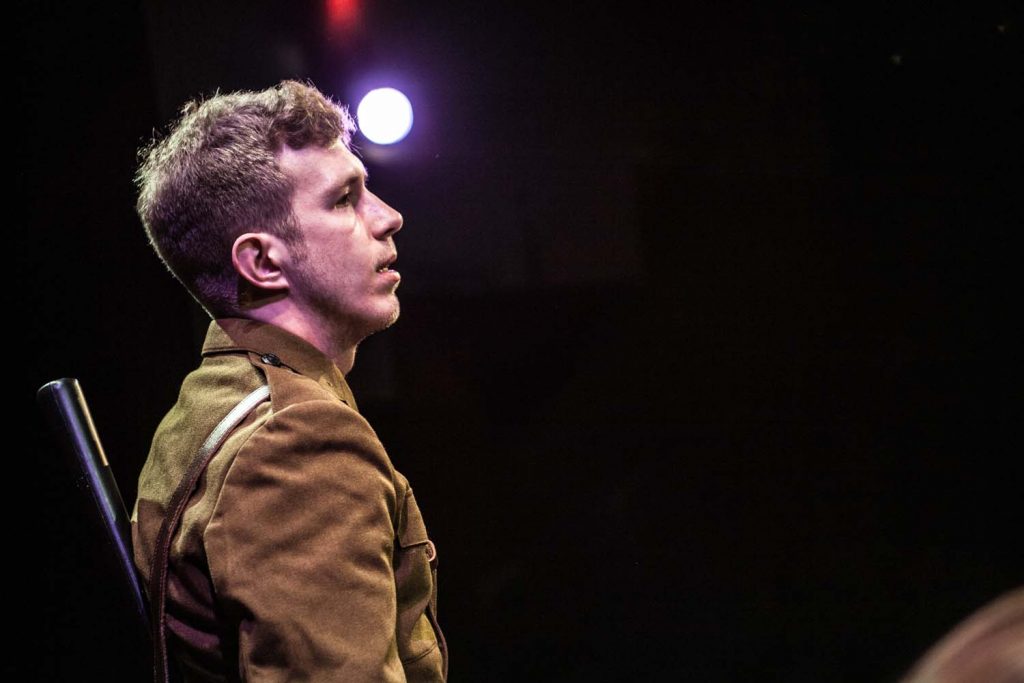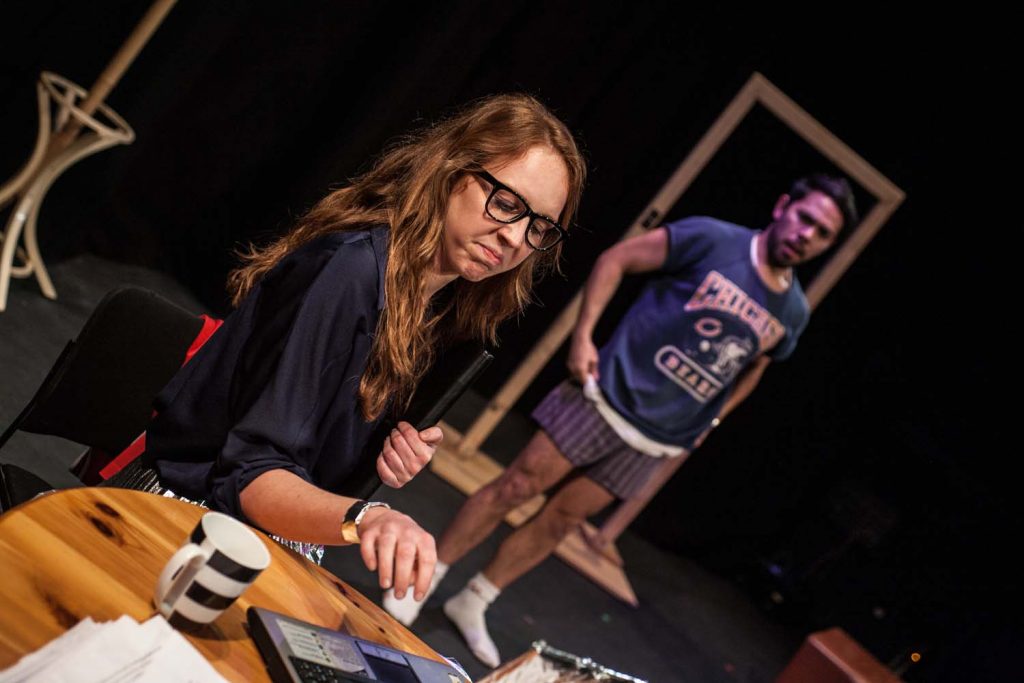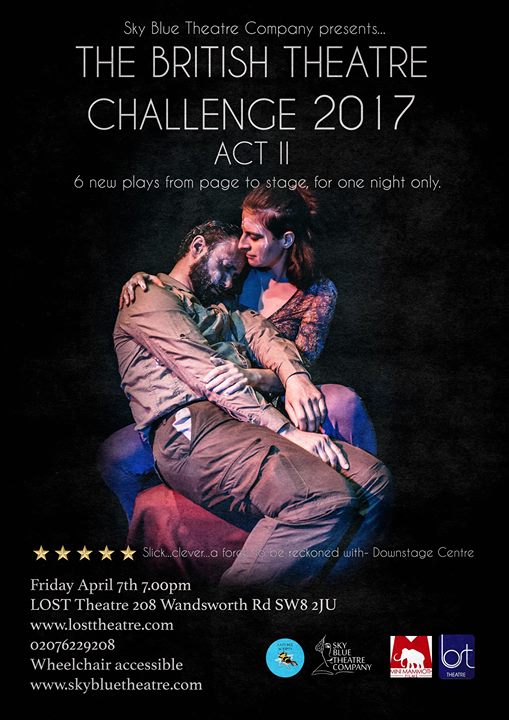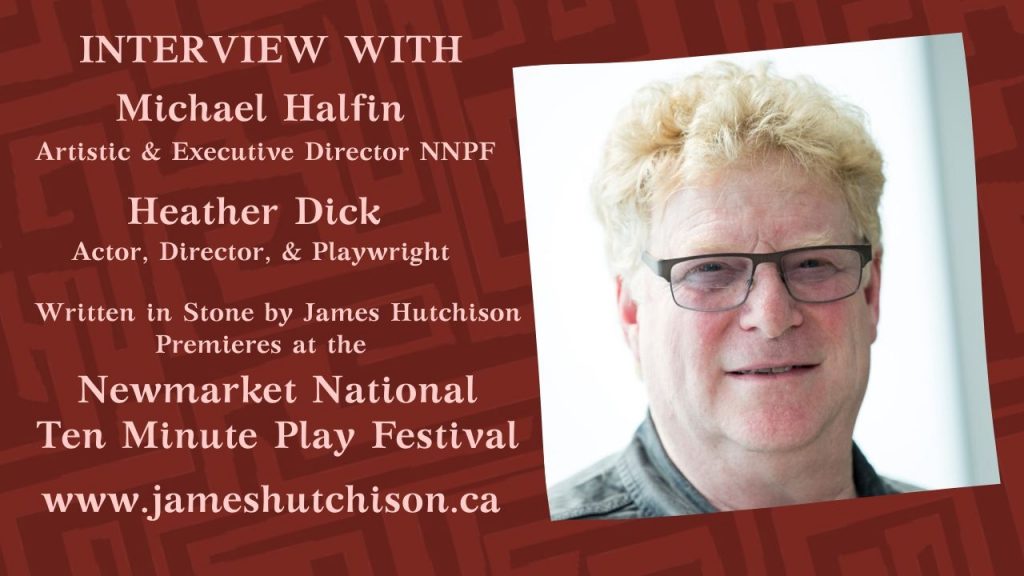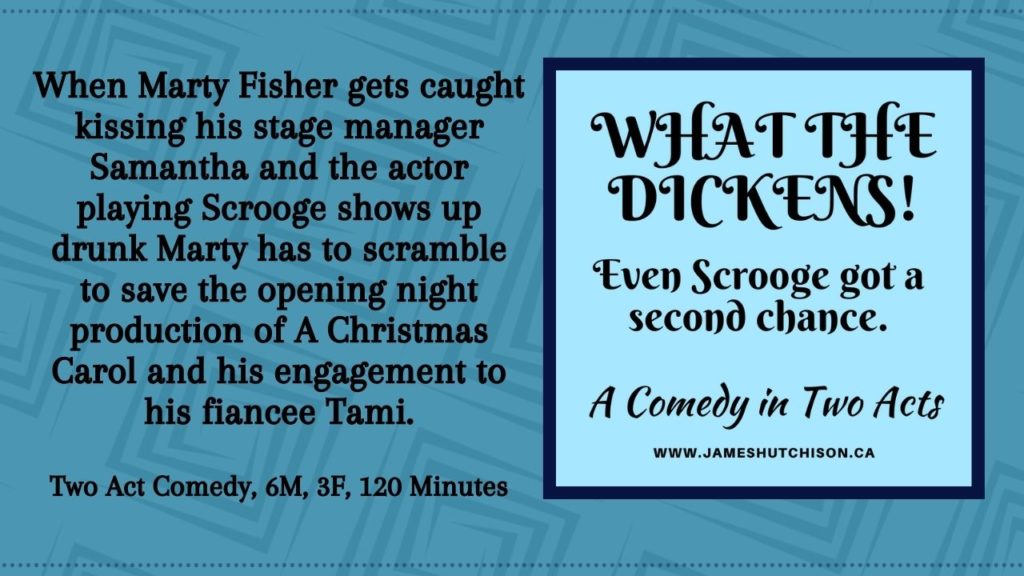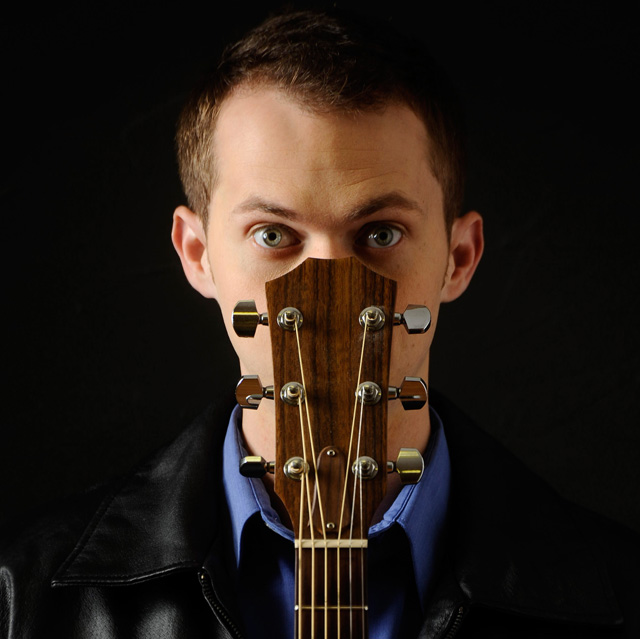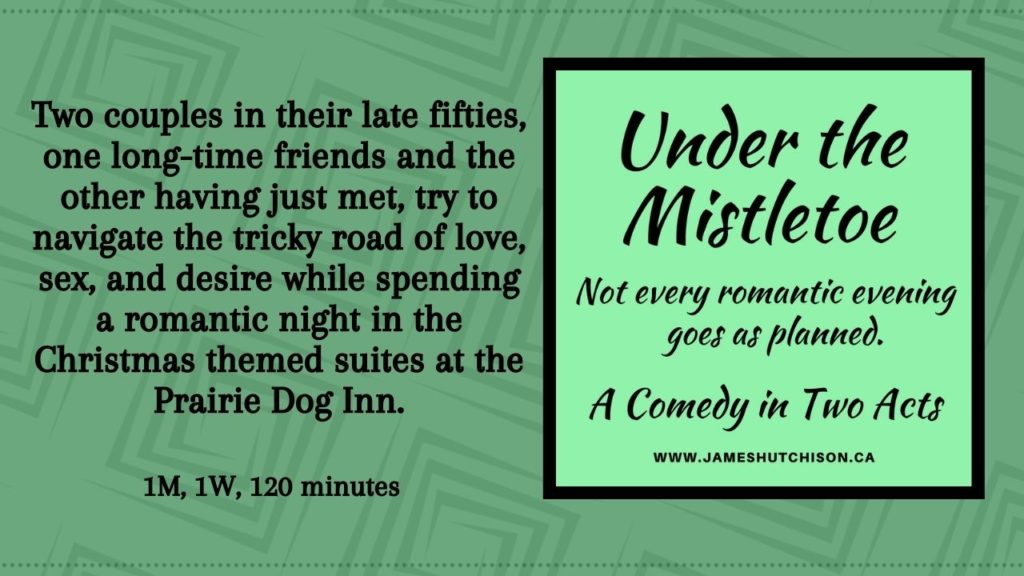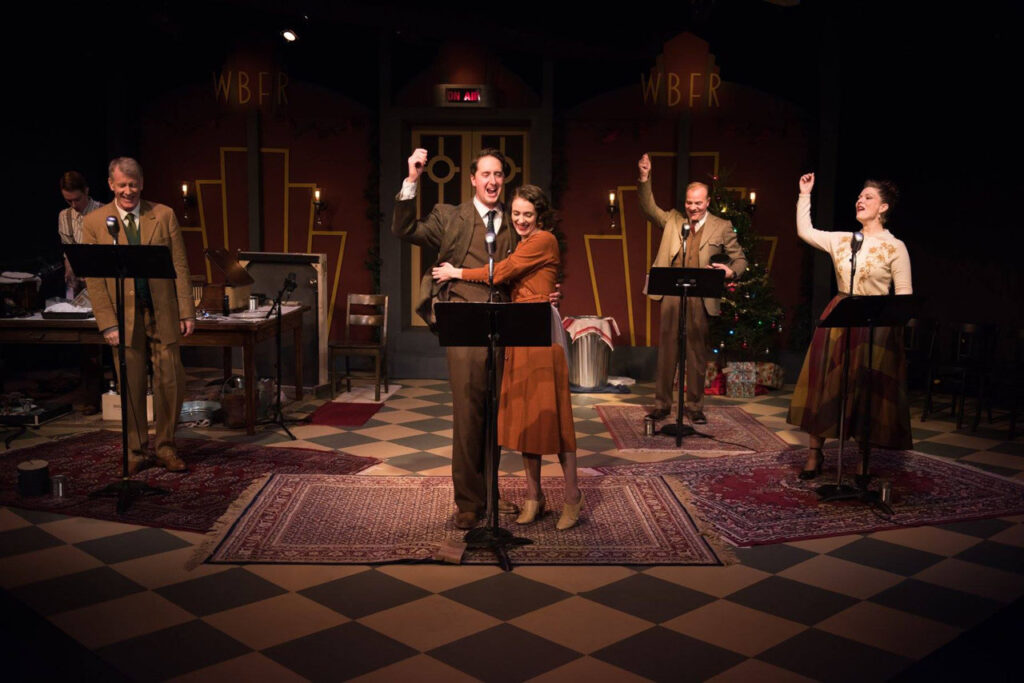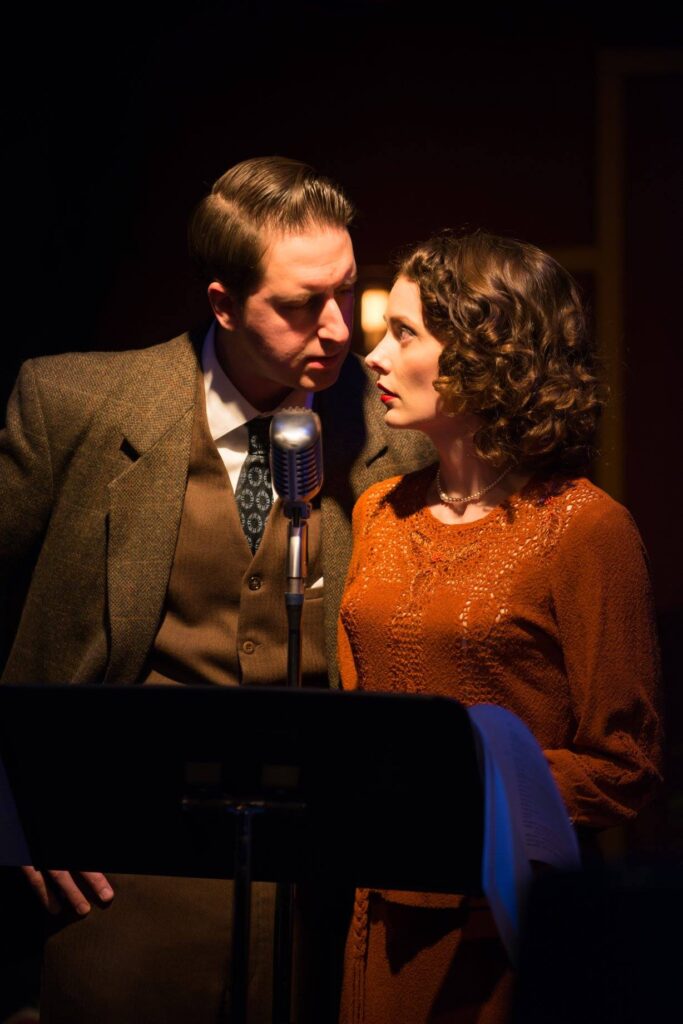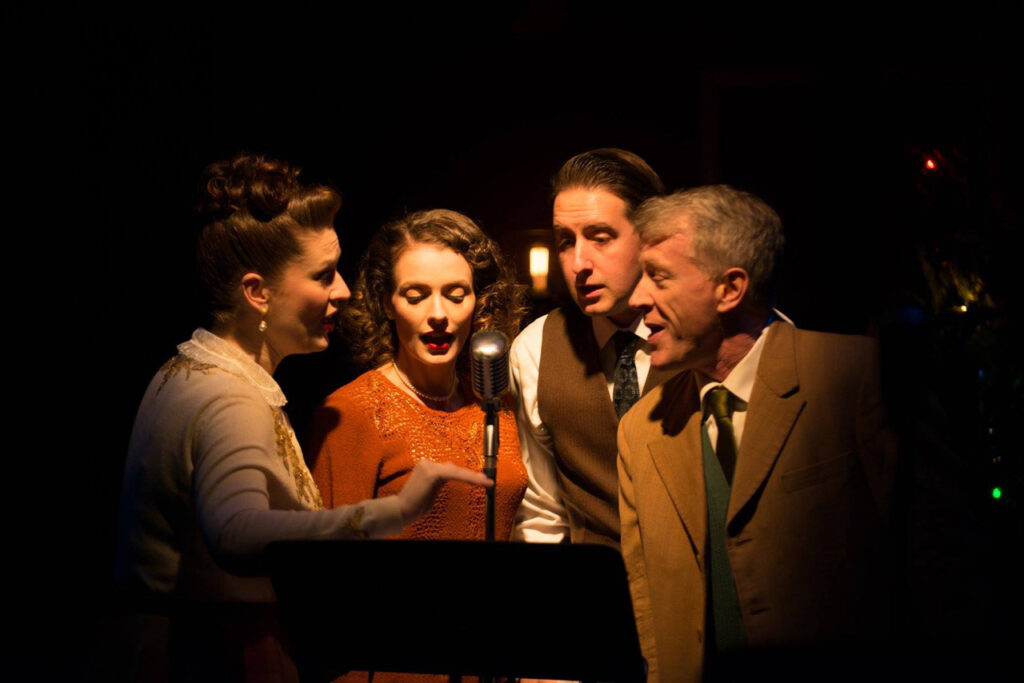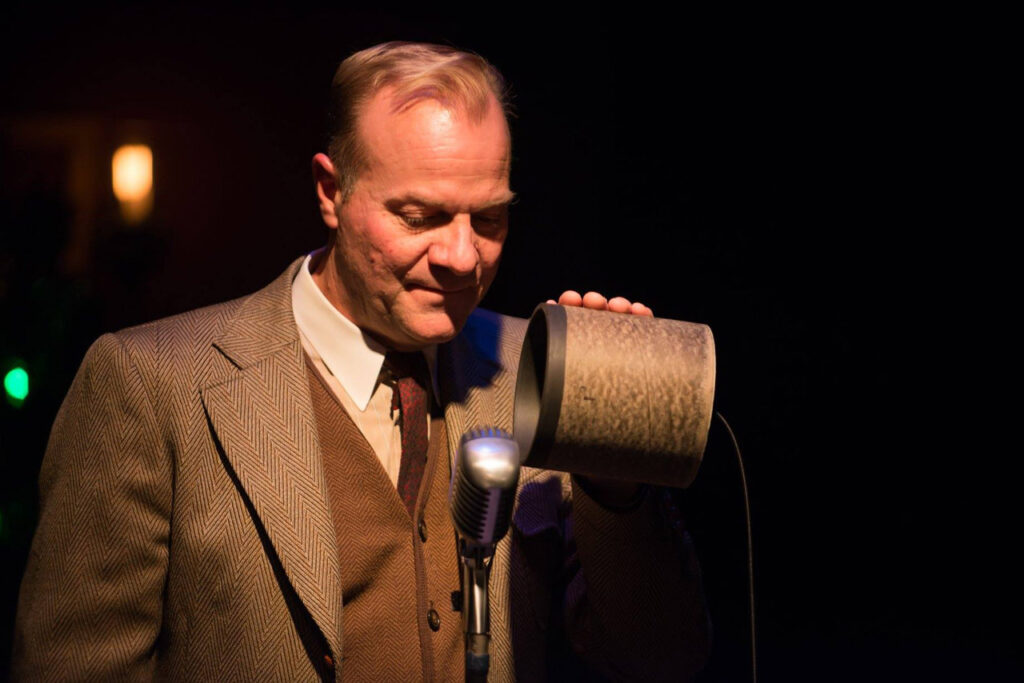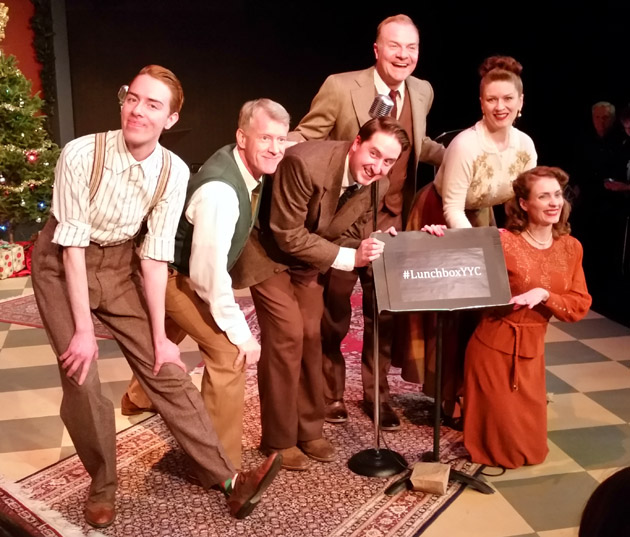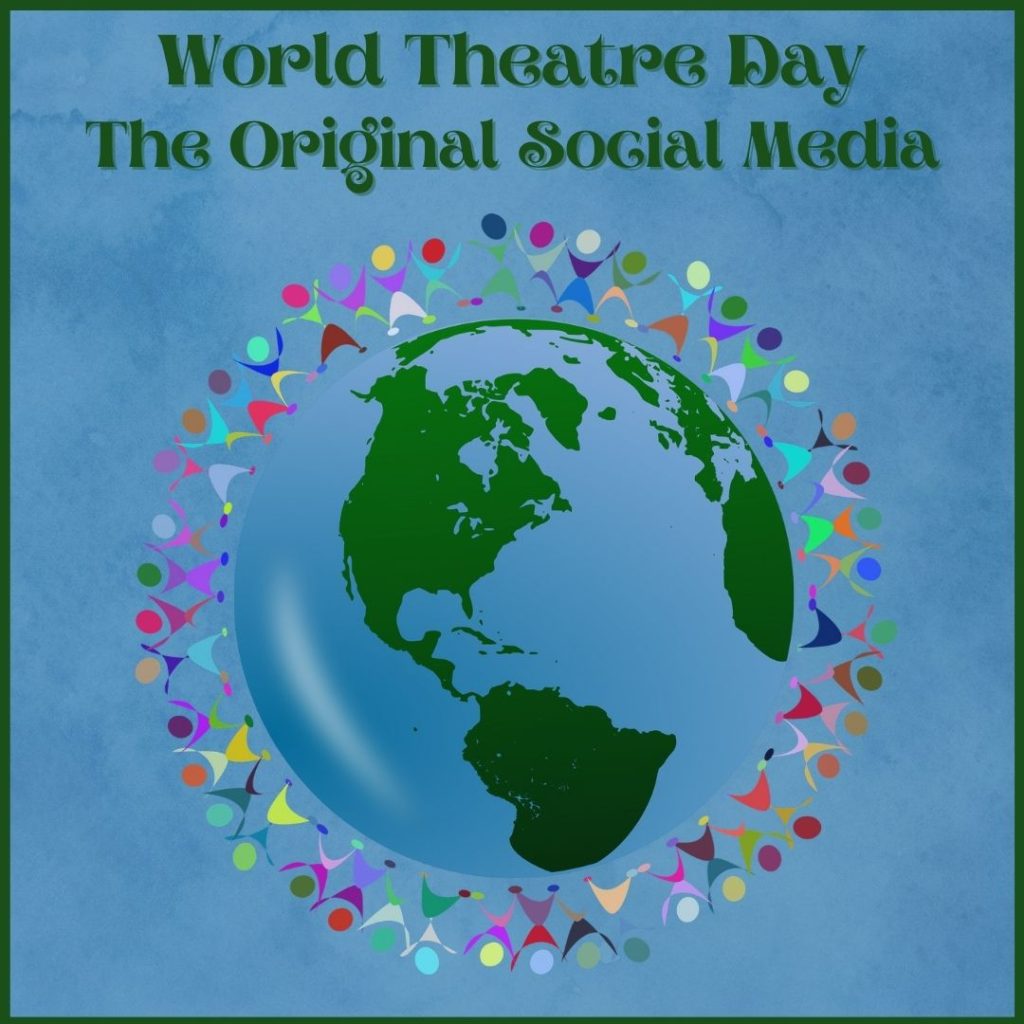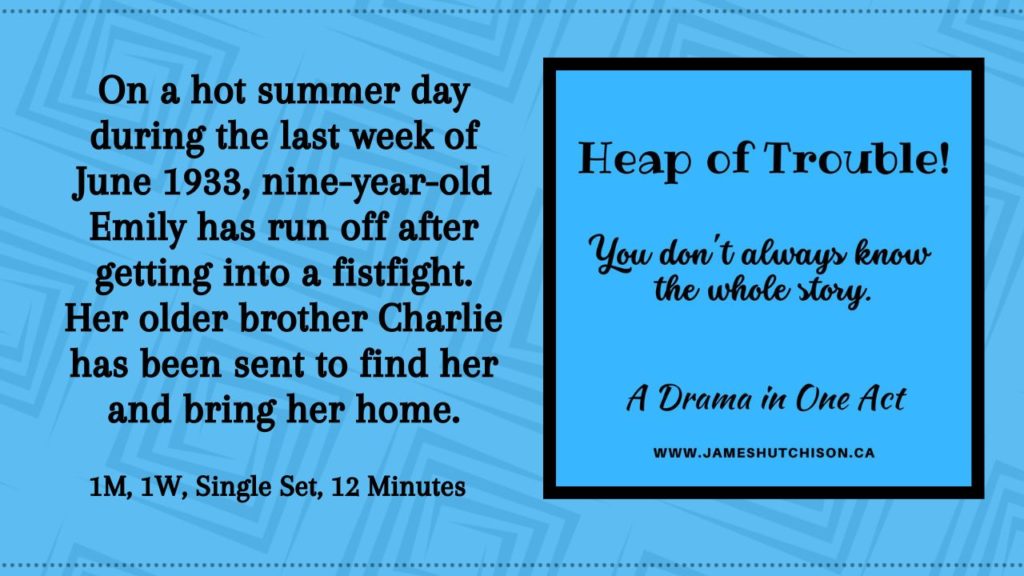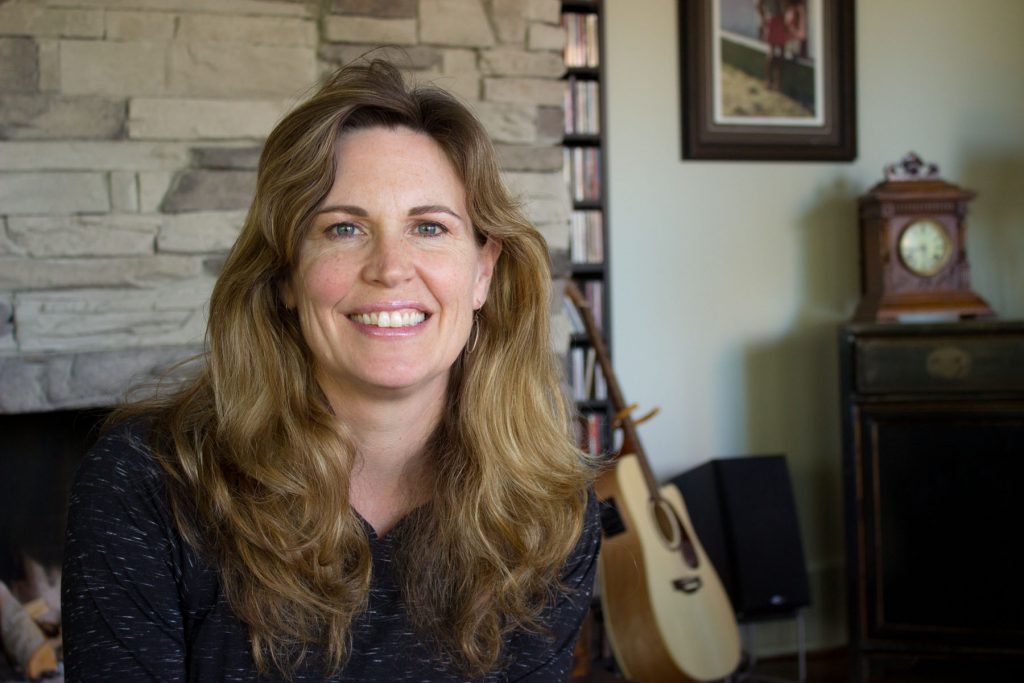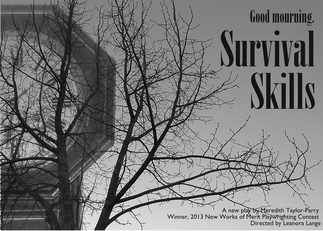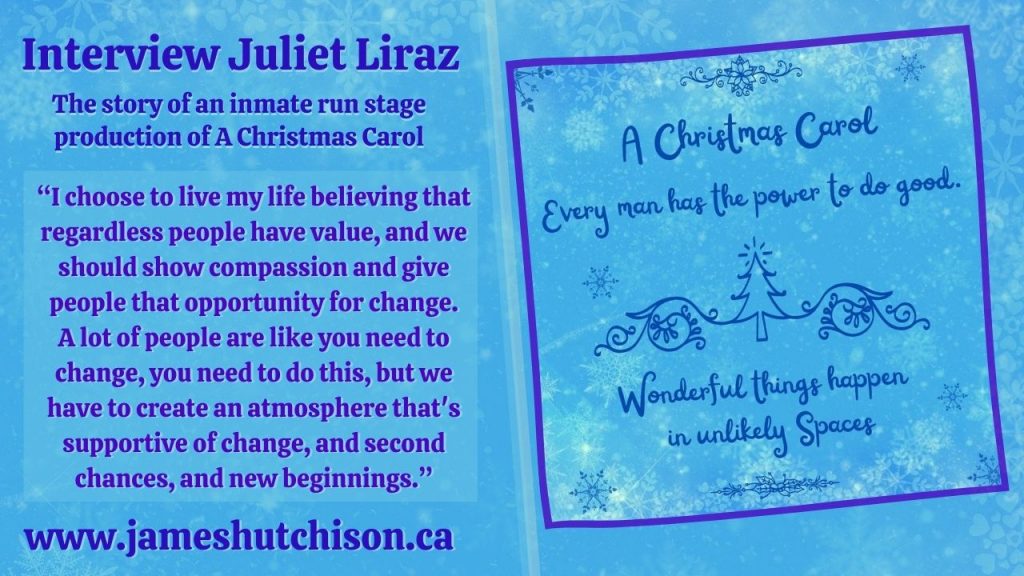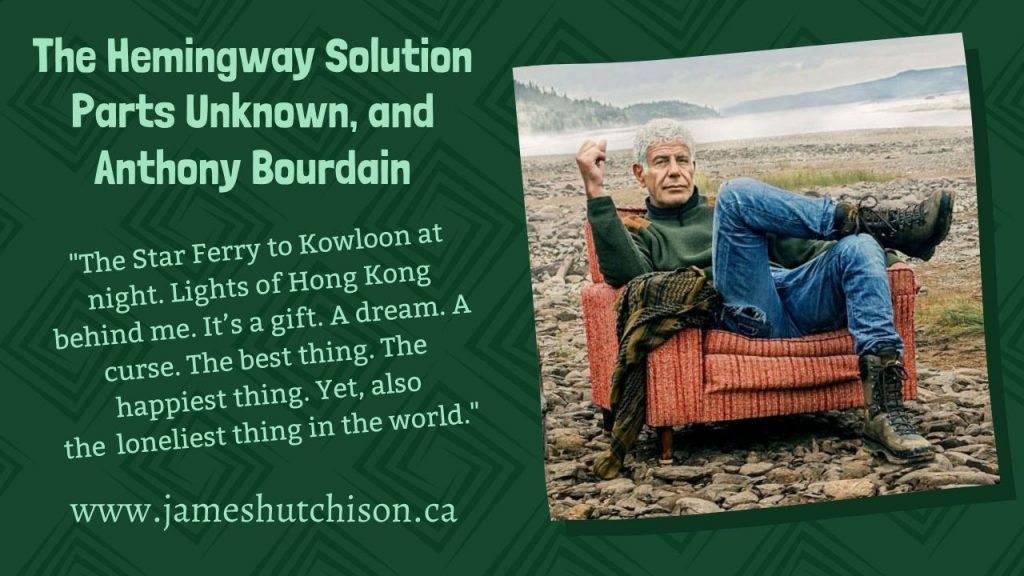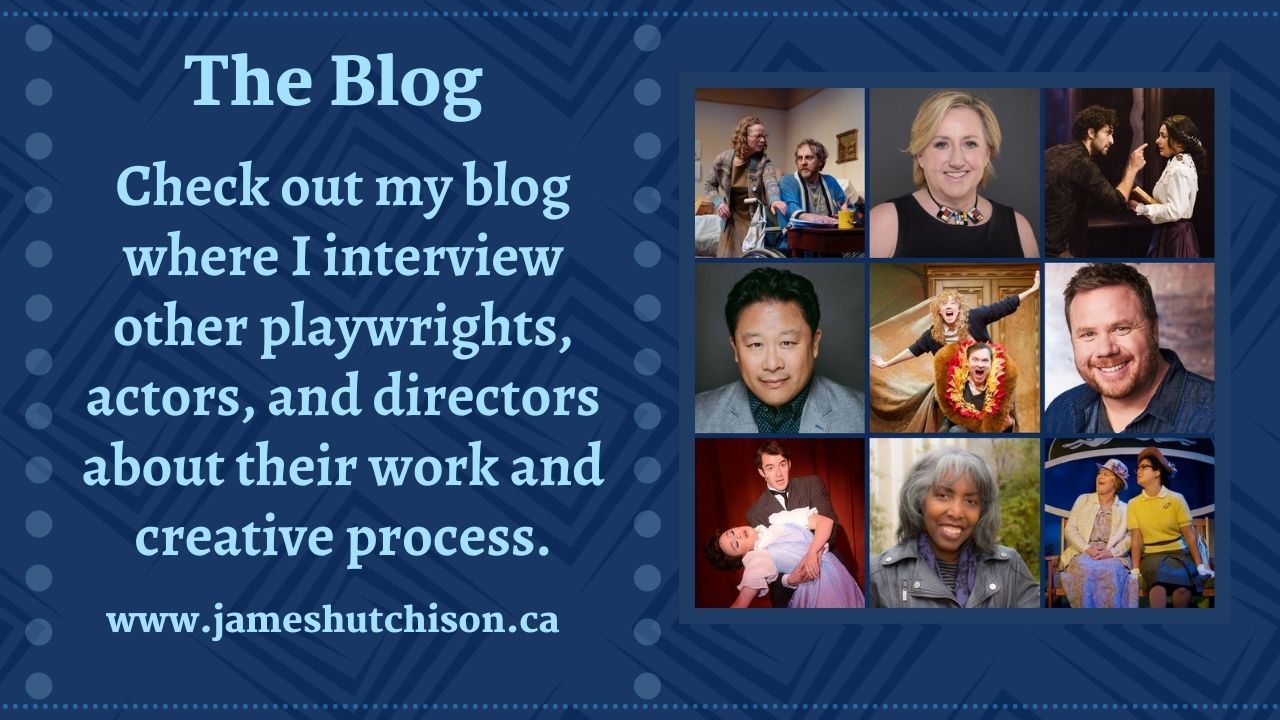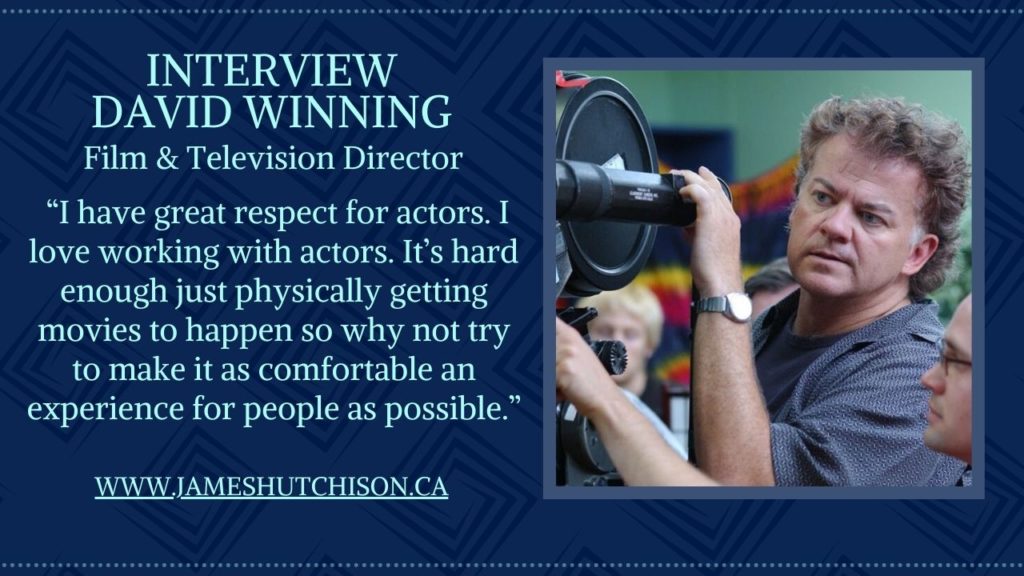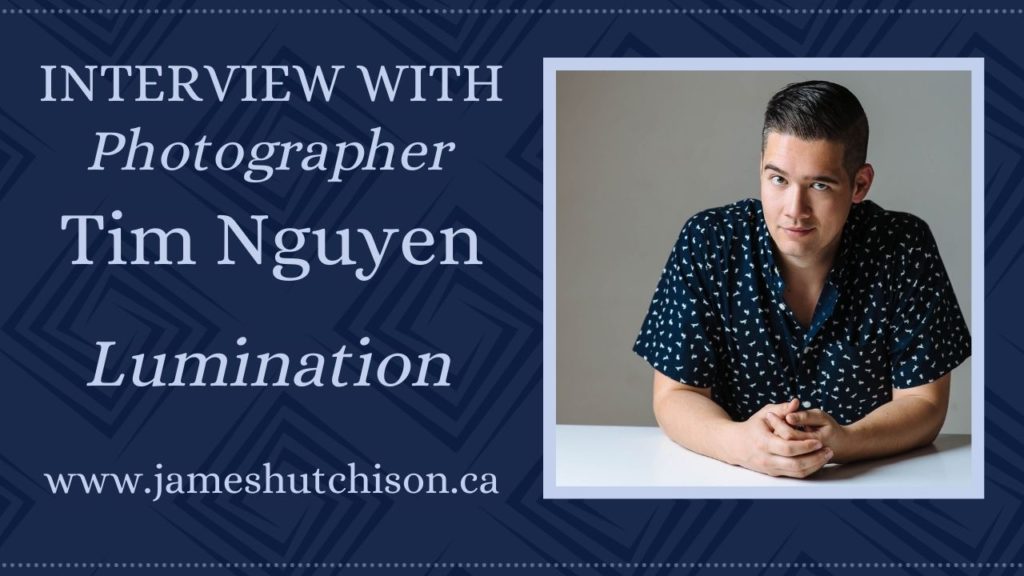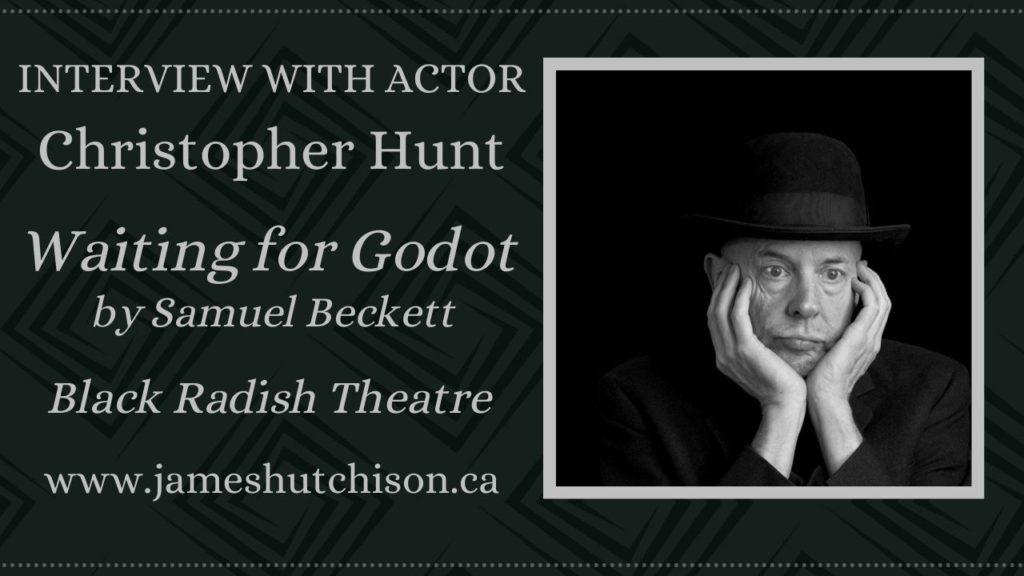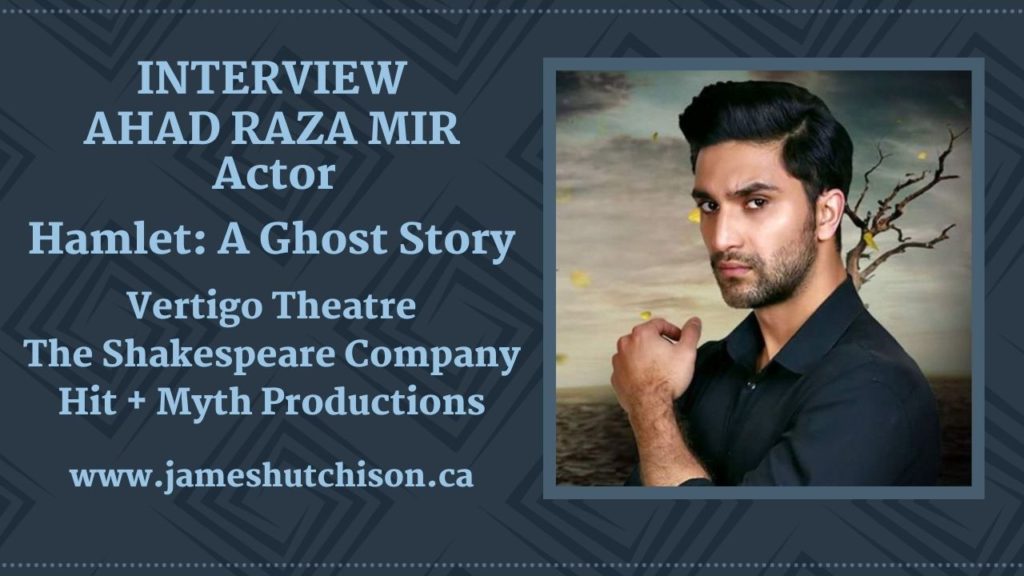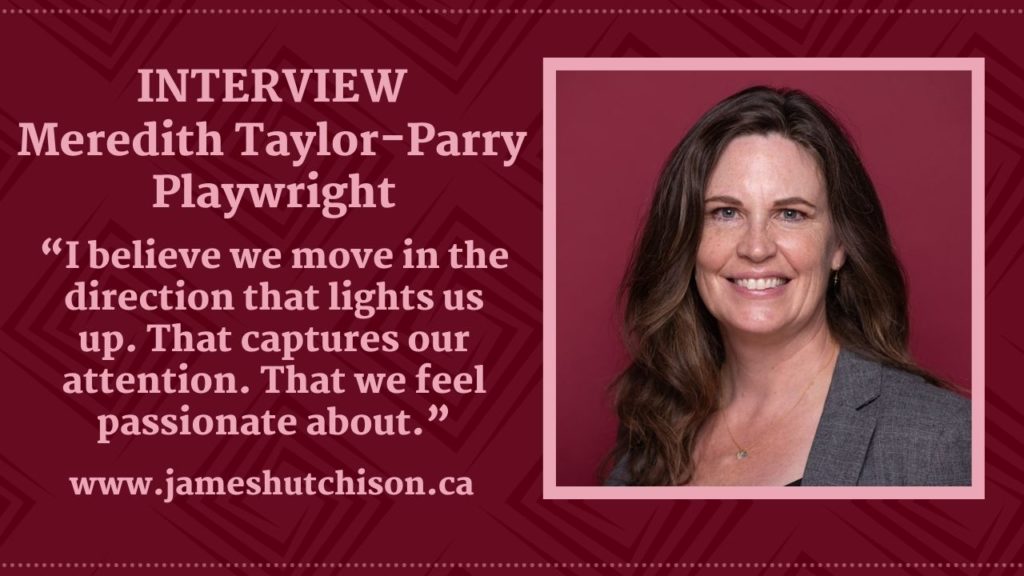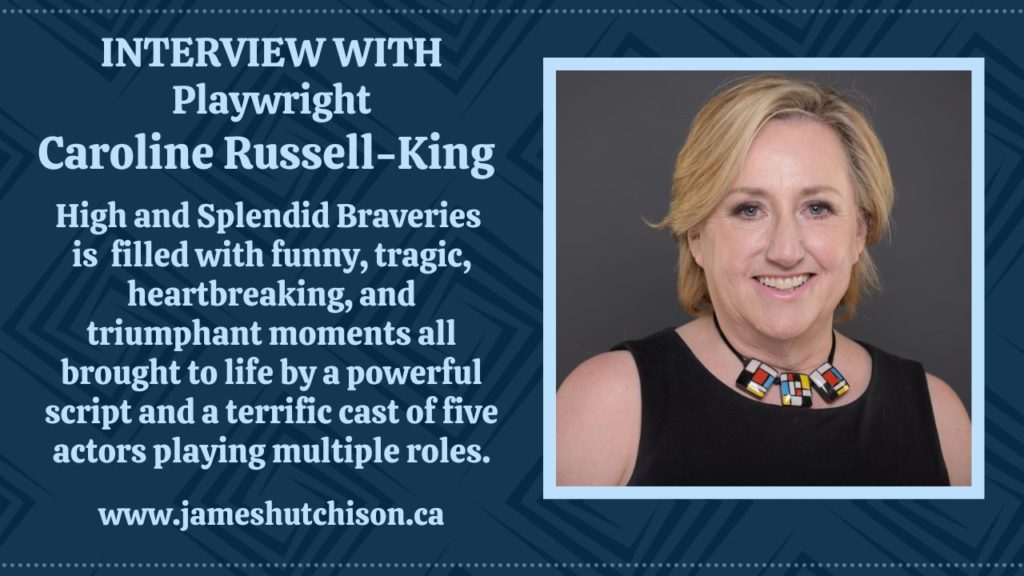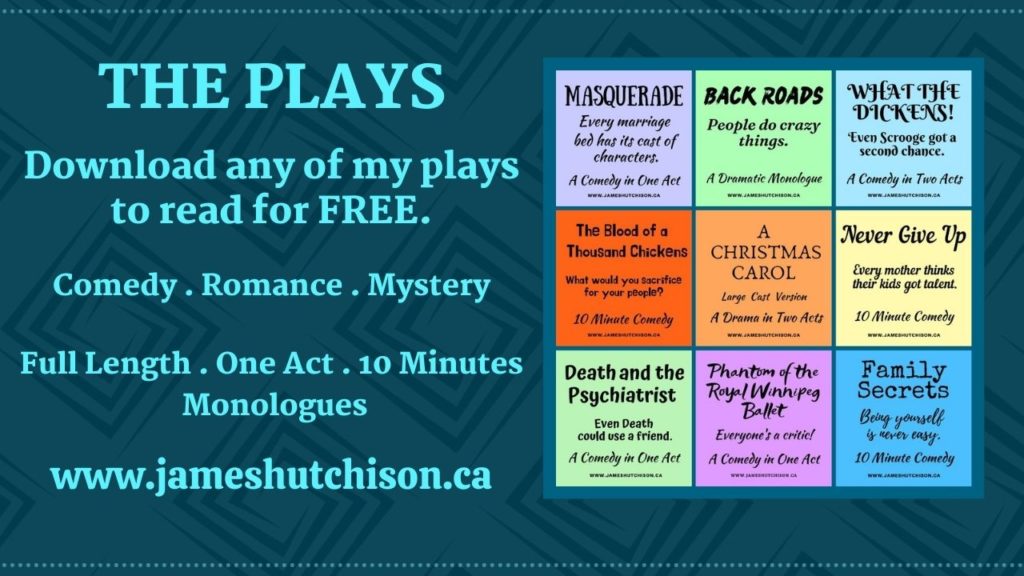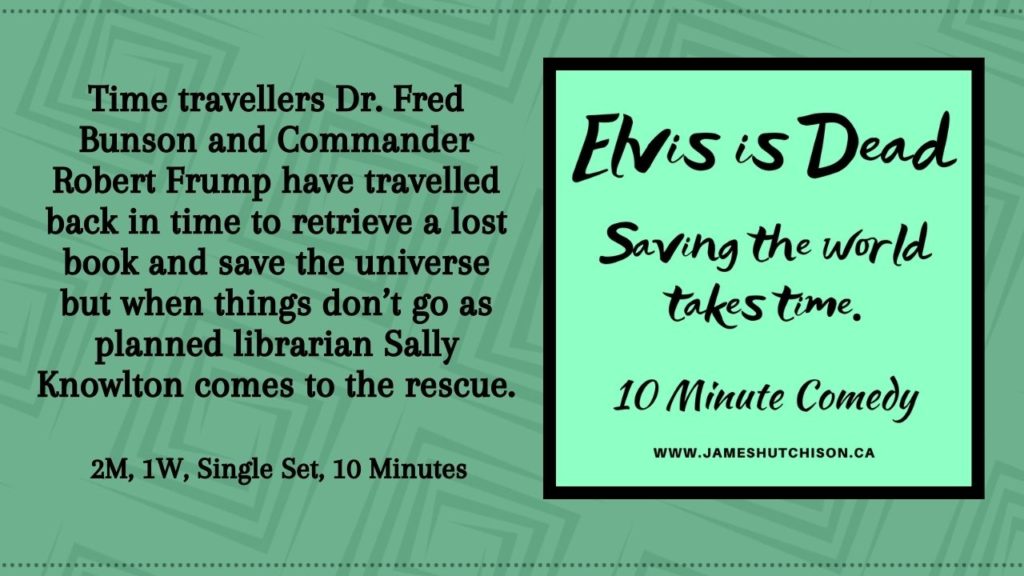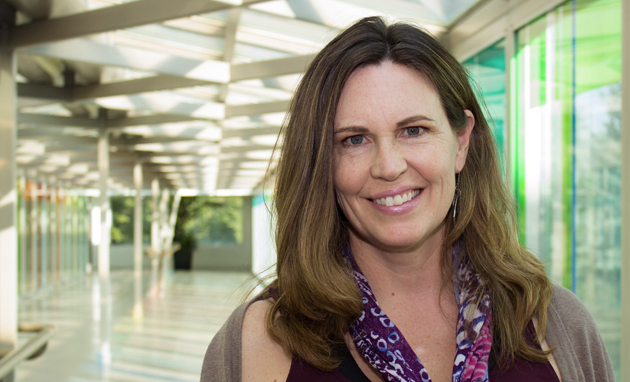
“I enjoy writing humour and I like the challenge. At the same time, if the story doesn’t have heart, if nothing serious is going on underneath the humour….what’s the point really? I want my plays to address some aspect of the human struggle that hopefully people can relate to. That’s what I want to see when I go to a play so naturally I aspire to that in my writing.” Meredith Taylor Parry interview Book Club II
***
Meredith Taylor-Parry is a Calgary-based actor and playwright whose fun and insightful comedy Book Club was a runaway hit for Lunchbox Theatre back in 2016. At that time I did a two-part interview with Meredith. In Part One we talked about Meredith’s play Survival Skills which won the New Works of Merit Playwriting Contest in 2013 and was produced Off Off Broadway by the 13 Street Repertory Company. In Part Two we talked about Meredith’s play Book Club which was a funny and insightful look at motherhood and the joys and disappointments of life. Now in this third interview, Meredith and I talk about her very funny and moving sequel to Book Club – Book Club II: The Next Chapter, which premieres at Lunchbox Theatre and runs from September 18th to October 7th.
***
JAMES HUTCHISON
The first Book Club was a big hit for Lunchbox Theatre and ended up having an extended and sold-out run. Audiences loved it! Why do you think the play resonated so well with audiences? And did you notice any difference in how men and women reacted to the play?
MEREDITH TAYLOR-PARRY
I knew I had a dream team as far as our director, actors, production and design team, but I never once imagined it would do so well! I can’t even tell you how much fun it was sitting in the audience listening to the laughs and waiting for the responses to my favourite moments. That was so exciting for me and unexpected.
I really think the reason the play resonated so well with people was because of the chemistry we had together as a group of artists. Everyone contributed so much to that script in the Stage One workshop process. There wasn’t one person in that room who didn’t add value to the script because everyone was brave enough to share themselves with me. I think that process and the generosity of the artists I was working with allowed me to find authenticity in the script along with the humour.
And, I think, the audiences liked it because they could relate to human beings, regardless of gender. One of the best comments I got was from a man who said, “good comedy is good comedy.”
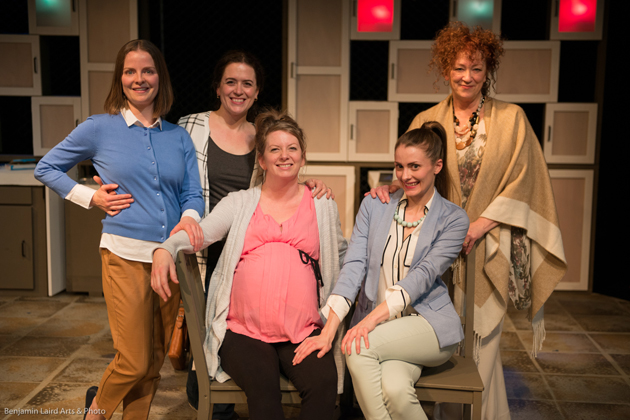
JAMES
How soon after Book Club did you start thinking about a sequel?
MEREDITH
I was watching performances of Book Club sell out and I was thinking, better strike while the iron is hot Meredith! I didn’t want to miss the opportunity to approach Mark Bellamy, Lunchbox Theatre’s Artistic Producer, when things were going well, and I had already been working on an idea for a sequel based on a weekend I had spent in Banff with my girlfriends.
I have the BEST group of girlfriends. We’re all moms and we have a lot of laughs together, and I’m constantly writing down ideas when I’m with them. They don’t mind either, they’re very supportive of my writing.
So, I took my idea and managed to scrape together 20 pages of Book Club II and a rough outline and I submitted it to Mark pretty much as soon as Book Club closed.
He was thrilled and considered it for the 2016 Stage One workshop but, due to scheduling issues, we couldn’t get the same team together to work on it. So, he scheduled me in for the 2017 Stage One series AND programmed it for the beginning of this season. He let me know at the beginning of this year and it was very exciting and of course a bit terrifying because I didn’t have a full script yet.
JAMES
What is Book Club II about?
MEREDITH
I wanted to further explore the nature of really good female friendships and examine how that works within one’s marriage.
There’s a special kind of intimacy I share with my girlfriend’s and I’ve questioned how that affects my relationship with my husband. Does he feel left out because I rely on them so much? What about my girlfriend’s spouses? How do they feel?
The first play was all about good girlfriends supporting each other through the messy business that is motherhood. I wanted Book Club II to explore the toll parenthood takes on a marriage and examine where the character’s husbands fit into the complicated lives of these women.
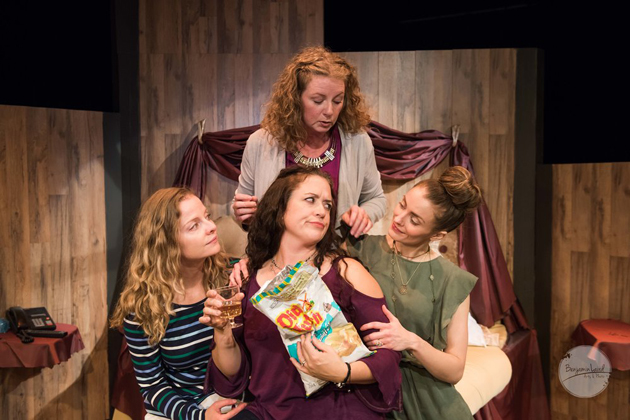
JAMES
Even a good marriage has rough patches and, I think, unfortunately, our society places a lot of unrealistic expectations on our relationships. For example, there’s the idea that our romantic partners should know what we want and feel and think without us actually having to tell them. That’s a romantic notion that doesn’t reflect the reality of marriage or relationships. To make any relationship work, romantic or otherwise, you have to communicate. You have to tell your partner – when you’re hurting – what you need – what’s going on in your life – otherwise they won’t know. So, I guess what I’m asking is whether or not you think that some of the problems people face in their marriages are because the reality of marriage doesn’t live up to the romantic fantasy of marriage? And maybe – now that I think of it – men and women have different expectations of what marriage is?
MEREDITH
Yes, and yes! We are raised on a certain brand of romance. Cinderella has been around for a long, long time! I think we are both unrealistic in our expectations and I think men and women have different expectations for their romantic relationships. I also agree that communication is key. Humans are terrible mind readers yet we easily make assumptions about our partner’s thoughts and behaviours and communicate our needs in cryptic ways.
In the workshop, we did discuss the typical “husband on the couch while wife slams dishes into the dishwasher” scenario. Why doesn’t she just ask for help? Why doesn’t he pitch in without being asked? We also talked about the different expectations for men and women when it comes to emotional vulnerability in communication. I think we’re improving but there’s still a culture of emotional toughness when it comes to boys.
JAMES
Where did the actual story for Book Club II come from?
MEREDITH
It started with the original idea of the characters getting away for the weekend and talking about their marital woes. I talked with lots of girlfriends and a few male friends about their marriages and I also did a lot of reading. There’s a lot of material out there about marriage and relationships! I went back as far as Men Are From Mars and Women Are From Venus, remember that one?
One of my favourites was “How Not to Hate Your Husband After You Have Kids” by Jancee Dunn. So, the story of Book Club II contains bits and pieces of all the research I did and of course it evolved greatly in the Stage One workshop this past June. Curt Mckinstry was extremely helpful with developing the husband character. Once again, I was blessed with a generous artist who was willing to share himself. And, of course, I got the rest of my dream team back as well.
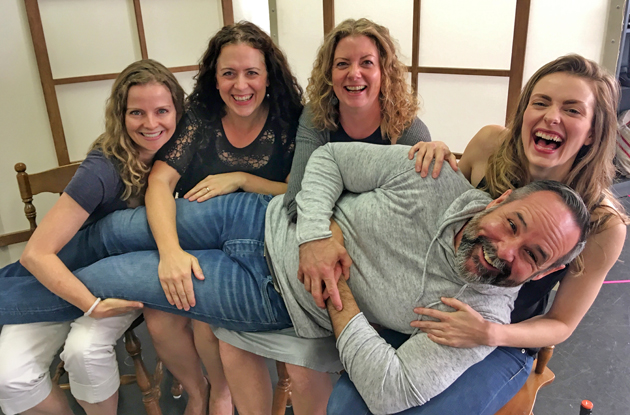
JAMES
Did you feel any pressure writing the sequel? Were you able to focus on the writing without worrying about it being as big a success?
MEREDITH
The pressure made me sick to my stomach to tell you the truth. What if number two sucks? But the great thing about a deadline is, you have no choice. I wasn’t going to walk into the workshop empty handed. It was a very intense week, the script was rough and I spent a lot of late nights writing so that I could address the issues that had come up during the day. That kind of intense writing leaves no room for your inner critic to get in the way. I did breathe a sigh of relief at the reading however when the audience seemed to like it. I also completely trust Shari Wattling, my dramaturg/director. She keeps me truthful and she keeps me focused and tells me when I’m drifting off course.
JAMES
I think one of the things that worked so well in the first play was the mix of humour and drama all brought to life by a wonderful cast and a terrific production. And I’d say based on the reading for Book Club II, which I saw back in June, I think you’ve managed to capture that same mix of humour and drama. So, I’m curious when you’re writing is the mix between humour and drama something you do intentionally or is it more of an intuitive process?
MEREDITH
I guess when I’m working I’m always looking for ways to work in funny or quirky bits. I enjoy writing humour and I like the challenge. At the same time, if the story doesn’t have heart, if nothing serious is going on underneath the humour….what’s the point really? I want my plays to address some aspect of the human struggle that hopefully people can relate to. That’s what I want to see when I go to a play so naturally I aspire to that in my writing.
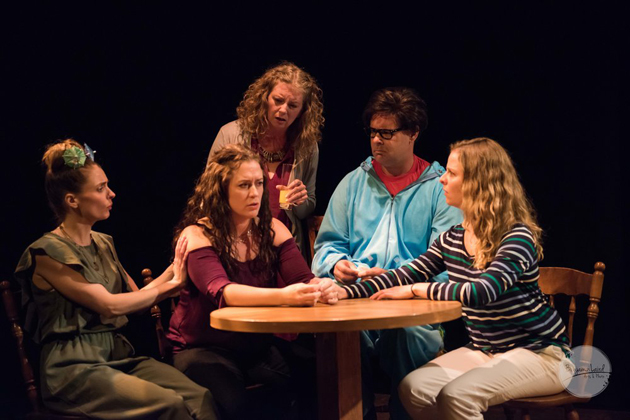
JAMES
It’s been a couple of years since you wrote the original Book Club. In what ways do you think you’ve evolved as a playwright?
MEREDITH
I’m learning more about structure and I’m learning more about the practice of writing. I was an on again off again kind of writer, creating in fits and starts and then buckling down when I had a deadline. But now, I write every day. A play is kind of like a lover, you need to give it attention so that it will give something back. If I give a play attention every day it seeps into my unconscious mind and feeds me new ideas constantly, even when I am not sitting at the computer. And hopefully on opening night, your lover doesn’t screw you over. Ha ha!
JAMES
If you loved Book Club you’re definitely going to love the sequel, but the great thing is you don’t need to have seen the first play in order to enjoy the second play. Both plays stand as full stories on their own. What do you want audiences to take away after they see the new story.
MEREDITH
My hope is that the audience will see a story they can relate to and enjoy a great night of theatre. I hope they will leave with a desire to see more theatre! There are so many spectacular offerings this season in Calgary!
JAMES
Are the girl’s stories going to continue? Is there a full-length play in the works? A book maybe? A possible television series?
MEREDITH
Good lord, you’re getting way ahead of me. Let’s see how this one goes first, shall we?
***
Book Club II: The Next Chapter runs from September 18th until October 7th at Lunchbox Theatre. Performance times are Monday to Saturday at 12:00 noon plus a 6:00 pm show on Thursdays and Fridays. Tickets are $26.00 for adults and $21.00 for students and seniors. Tickets can be purchased on-line at Lunchbox Theatre or by calling the box office at 403-265-4292 x 0.
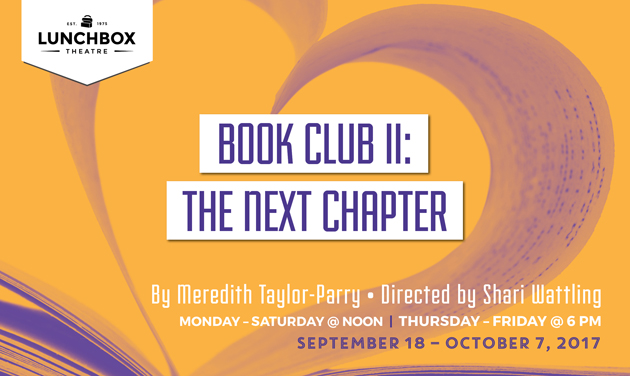
Lunchbox Theatre 2017/2018 Season
Book Club II: The Next Chapter by Meredith Taylor-Parry
Book Club is back. Get ready for another page turner.
September 18 – October 7, 2017
During a weekend getaway where the girls talk about creating a Mommy Commune and Lisa runs into an old boyfriend, the girls of Book Club have to examine what marriage and sisterhood truly means to them.
CAST
Kira Bradley – Kathy
Anna Cummer – Ellen
Cheryl Hutton – Lisa
Arielle Rombough – Jenny
Curt Mckinstry – Barry / Bartender / Colin
CREATIVE TEAM
Meredith Taylor-Parry – Playwright Book Club II
Shari Wattling – Director
Chris Stockton – RBC Emerging Director
Terry Gunvordahl – Scenic & Lighting Design
Rebecca Toon – Costume Design
Allison Lynch – Sound Design
Ailsa Birnie – Stage Manager
Ava Bishop – Production Assistant
Flight Risk by Meg Braem
One man’s heroic journey to find peace.
October 23 – November 11, 2017
World War II veteran Hank Dunfield is about to celebrate his 100th birthday, but painful memories of his time as a tail gunner during the war don’t make him feel much like celebrating. Only his new nurse Sarah is finally able to get to the heart of Hank’s pain and sorrow and help Hank find peace with the past.
The Santaland Diaries by David Sedaris, adapted by Joe Mantello
The is one elf that won’t make the nice list.
November 27 – December 23, 2017
An out-of-work actor in New York city takes a job as an elf in Macy’s Santaland Village and reveals all the crazy and hilarious behind-the-scenes shenanigans of the holiday season. A Christmas comedy for the little bit of humbug in all of us.
Inner Elder created and performed by Michelle Thrush
One woman show for all people.
Co-Presented with the High Performance Rodeo
January 15 – 27, 2018
Using real memories about her Grandmother’s impact on her life, award winning Calgary actress, Michelle Thrush takes audiences on a journey of discovery. A journey where we see the transformation from child to elder and learn that for everyone laughter is the best medicine.
Ai Yah! Sweet & Sour Secrets by Dale Lee Kwong
Dinner is served. So are juicy family secrets.
February 19 – March 10, 2018
When her father invites a surprise guest to celebrate Chinese New Years more than one family secret comes out of the closet and Chinese-Canadian Jade Wong is caught between being true to herself and living up to her family’s cultural expectations. A funny heart-warming story for anyone who has ever faced an awkward family dinner.
Miss Caledonia by Melody Johnson
This story will be over in an hour. Her Hollywood dreams may be too.
April 2 – 21, 2018
Peggy Ann Douglas dreams of becoming a Hollywood movie star and leaving behind all the stall cleaning, hay-baling drudgery of her 1950’s life on Rural Route 2. Step one is to sing, twirl and pivot her way to being crowned Miss Caledonia in the local pageant!
***
Playwright Meredith Taylor-Parry
Meredith Taylor-Parry is a playwright based in Calgary, Alberta. Her plays include So Long, a TYA play which toured Calgary and area schools in 2012 with Sandbox Children’s Theatre, Survival Skills (Winner New Works of Merit Playwriting Contest 2013) which was produced Off Off Broadway in 2014 by the 13 Street Repertory Company NYC and Devices which was produced as part of the 27th annual New Ideas Festival presented by Alumnae Theatre in Toronto. Her one act comedy, Book Club, received its world premiere at Lunchbox Theatre in Calgary in 2016, performing for a majority of sold-out audiences and held over due to the play’s popularity. She is looking forward to returning to Lunchbox with the sequel this September: Book Club II: The Next Chapter. Meredith is a co-founder of Bigs and Littles Theatre Society and a stay-at-home mom to 11 and 12-year-old girls. She is currently pursuing her MFA in Playwriting at the University of Calgary.
Bartley and Margaret Bard and Betty Gibb founded Lunchbox Theatre in Calgary in 1975. Lunchbox delivers a fun and unique experience to its audience – upbeat performances in an intimate and comfortable atmosphere. Patrons are encouraged to eat their lunch while they enjoy the show. Lunchbox Theatre focuses on the development and production of original one-act plays; many of which are written by local Calgarians.
